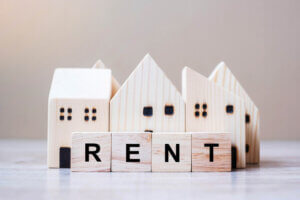
Advantages of Buying a Home
When you own your own home, every payment you make on your mortgage helps to build up your home’s equity. Any interest you pay on your mortgage may be tax-deductible. By accruing equity in your home, it’s a way of accumulating forced savings over having to try and actually put away savings every month. And when you own your own home, you won’t have to worry about leaving and moving unless you want to. You can also follow your own rules by allowing pets or remodeling when you’d like, or you could even rent your home out to someone else.
Disadvantages of Buying a Home
When you purchase a home, there can and will be many costs involved over the years, including the expected and unexpected. Owning a home also comes with a lot of responsibility such as time and money for things like general upkeep, repairs, and homeowner’s insurance. HOA fees can also be expensive. Unfortunately in some markets, it’s entirely possible that home prices may decrease over time. If you need to move quickly because of a job or life-changing experience, it’s harder and more time-consuming when you have to sell first.
Advantages of Renting a Home
Overall, making a monthly rent payment could be less than paying a mortgage. As a renter, you’re not responsible for maintenance or annual taxes due. While you may have to come up with a deposit, it’s going to be far less than a down payment on a home. It’s also easier to move by giving the required notice as you can just pack up and go to a new job in a new city without having to face any complications when trying to sell a home quickly. And when you’re renting, it doesn’t matter if the value of the property goes up or down, plus some benefits may be included such as utilities and/or amenities like a pool or security.
Disadvantages of Renting a Home
Unfortunately, it’s a given that rental prices will keep rising year after year as per laws allow. It’s also a downer that by renting, there’s no equity being built up and no tax benefits, there may be more rules to follow such as no pets or renovating allowed, and less stability that comes along with those annual rent increases. You may also be stuck in a lease for a set term of one year or more. And when you’re renting, the monthly payments never stop.
Calculating Rent vs. Buy Options
While there are tons of rent vs. buy calculators available online, Truila offers two easy ways to compare rent vs. buy:
- The rule of 15. For example, if your current rent is $1,000 per month, that works out to be $12,000 per year. You’ll take that number and multiply it by 15 to get a possible purchase price for a home of $180,000.
- The rule of 15 in reverse. For example, if the price of a home is $240,000, you’ll take that number and divide it by a year’s rent, say $12,000 as above. That gives you a ratio number of 20. Trulia says those that fall within a ratio of 1 to 15 should consider buying a home, while a ratio of 16 and above should likely remain as renters, depending on your location.
An Investing Pro’s Opinion
According to an article on Kiplinger.com featuring investing tycoon Jeremy Schneider, Schneider suggests rent vs. buying isn’t even the right question to ask. He says people who focus on which choice is financially better are missing the bigger questions, “How much are you spending and saving in each scenario? Are you investing the extra money you have each month?” He cites an example of buying a home for $100,000. At the end of a 30-year mortgage, the homeowner will have paid approximately:
- $200,000 in mortgage payments
- $30,000 on homeowner insurance
- $100,000 for repairs and maintenance
- $56,000 in property taxes
- $18,000 in real estate fees when selling the home
Which adds up to more than $400,000 for a home that will likely sell for around $278,000. So, this means the homeowner will ultimately lose money on their overall home investment. Schneider goes on to say that while renting may feel like a ‘step down’ for some, renting will also give you a break from maintenance and taxes when you decide to retire.
Take Control of Your Homeownership Journey with DomiDocs®
Managing your home shouldn’t be stressful. DomiDocs® empowers homeowners with innovative technology, expert guidance, and unparalleled organization—all within a secure, cloud-based platform. From protecting your property and finances to streamlining essential tasks, our tools help you save time, reduce expenses, mitigate costly risks, and maximize your home’s value.
Explore the DomiDocs suite of solutions:
- Homeowner Enablement Platform® – A centralized, digital hub for organizing documents, tracking home value, and managing property details effortlessly.
- HomeLock™ – Protects your home from fraud and title theft with 24/7 monitoring and instant alerts.
- TrueValueIndex® – Provides real-time insights into your home’s value to help you make informed financial decisions.
- propRtax® – Identifies potential property tax savings and ensures you’re not overpaying.
- Documenting for Disaster® – Securely stores critical homeownership documents, ensuring quick access before and after a disaster.
Join the home management revolution today and experience the confidence that comes with having everything you need in one place.
Author – Connie Motz
